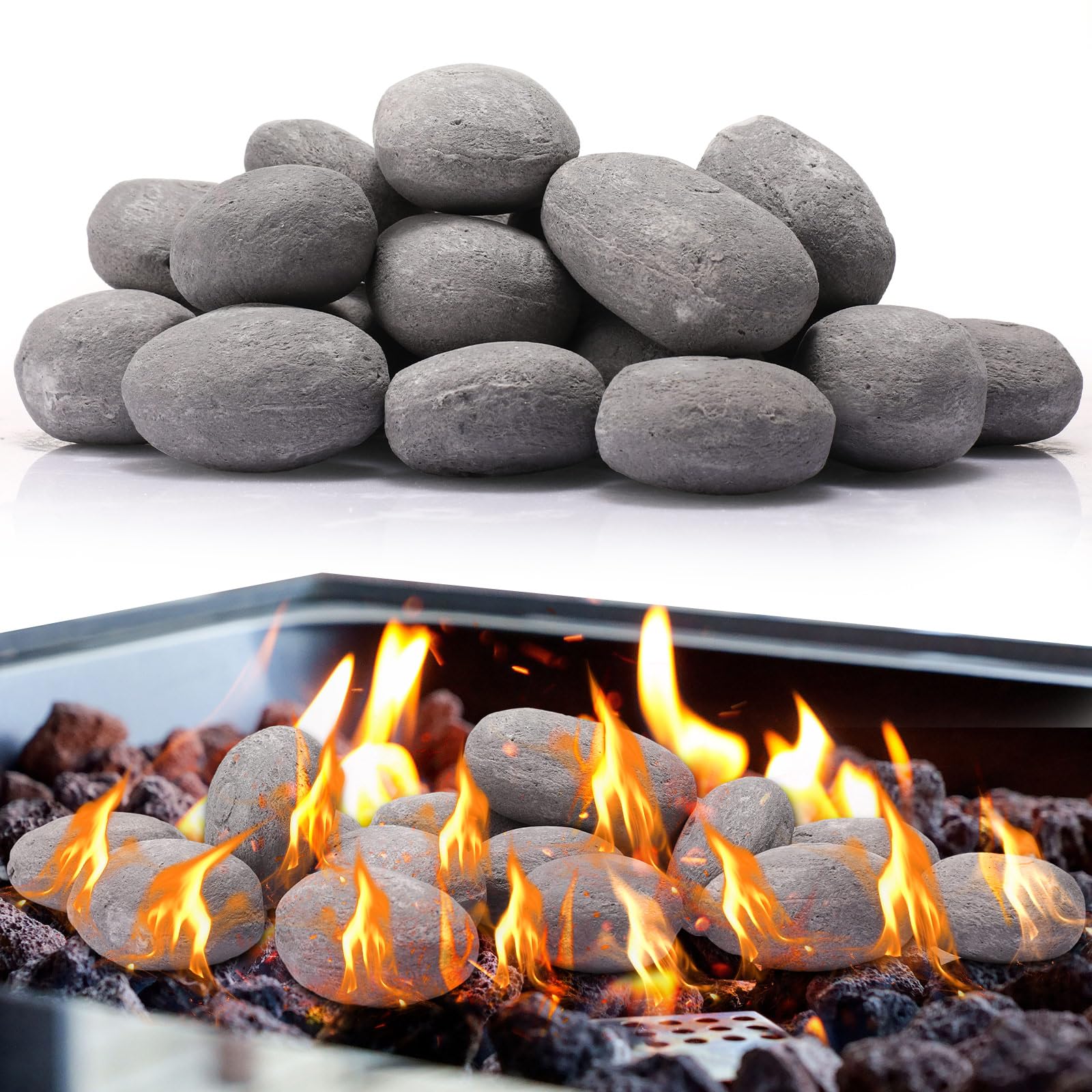There’s something undeniably captivating about a crackling fireplace. It brings warmth and a sense of comfort to any home. However, have you ever thought about how decorative rocks can transform the look and feel of your fireplace? In my personal experience, integrating decorative rocks has not only improved the aesthetic of my living room but also added a touch of personalization that reflects my style. In this comprehensive guide, we’ll explore everything you need to know about decorative rocks for fireplaces, from types and benefits to maintenance tips.
Why Choose Decorative Rocks for Your Fireplace?
Decorative rocks are becoming increasingly popular among homeowners. They serve multiple purposes that enhance both functionality and beauty:
- Visual Appeal: Decorative rocks provide an elegant finish that complements your fireplace’s design.
- Heat Retention: Certain types of rocks can retain heat, making your fireplace more efficient.
- Durability: Unlike traditional materials such as wood and coal, rocks can withstand high temperatures without deteriorating.
- Versatility: Various types of decorative rocks can suit different design themes, from modern to rustic.
Types of Decorative Rocks for Fireplaces
Choosing the right type of decorative rock is crucial. Here’s a detailed look at some popular options:
Pebbles and River Rocks
Pebbles and river rocks are smooth stones that add a natural touch. They are perfect for modern and minimalist designs.
Pros:
- Natural aesthetic
- Easy to clean
- Variety of colors

Cons:
- May not retain heat well
- Can become slippery if wet
Lava Rocks
Lava rocks are popular for gas fireplaces. They are lightweight and known for their excellent heat retention properties.

Pros:
- Great heat retention
- Lightweight
- Unique textures
Cons:
- Can be brittle
- Limited color variety

Granite and Marble Chips
Granite and marble chips add a luxurious feel to your fireplace. They are often used for decorative purposes only.
Pros:
- Elegant appearance
- Durability
- Variety of colors available

Cons:
- Can be heavy
- More expensive than other types
Crushed Stone
Crushed stone can be a versatile option and is often used for both aesthetic and practical purposes.

Pros:
- Cost-effective
- Can fill gaps in larger arrangements
- Many color and texture options
Cons:
- Can be sharp
- Dusty when dry

Installation Process for Decorative Rocks
Installing decorative rocks is a straightforward process, but ensuring it’s done correctly is vital for both safety and aesthetics. Here’s a step-by-step guide:
Step 1: Choose Your Rocks
Pick the type of decorative rock that suits your style and needs. Consider the color, size, and texture.

Step 2: Prepare the Area
Remove any existing materials or debris from the fireplace area. Clean thoroughly to ensure proper adhesion if necessary.
Step 3: Create a Base Layer
For best results, create a base with sand or gravel to help with drainage. This will prevent moisture buildup.
Step 4: Arranging the Rocks
Start by placing the largest rocks at the bottom. Work your way up, filling in gaps with smaller stones. Arrange them in a visually pleasing manner.
Step 5: Secure the Rocks
If necessary, use a concrete adhesive to secure the rocks in place, especially if you’re using larger stones.
Maintenance Tips
To keep your decorative rocks looking their best, consider the following maintenance tips:
Regular Cleaning
Dust and debris can accumulate over time. Use a soft brush or vacuum to keep the area tidy.
Check for Damage
Inspect the rocks regularly for any signs of wear or damage, especially if you use them in a fireplace setting. Replace or repair as needed.
Avoiding Moisture
Ensure that the fireplace is well-ventilated to avoid moisture buildup, which can lead to mold or deterioration of certain rock types.
Decorative Rocks vs. Traditional Fireplace Materials
When comparing decorative rocks to traditional fireplace materials, there are several factors to consider. Below is a comparison table to help you make the best choice:
| Feature | Decorative Rocks | Traditional Materials (Wood, Coal) |
|---|---|---|
| Visual Appeal | Highly customizable | Classic but limited options |
| Heat Retention | Varies by type | Excellent |
| Maintenance | Low maintenance | Requires regular cleaning |
| Longevity | Very durable | May rot or decay |
| Cost | Varies | Can be expensive |
FAQs About Decorative Rocks for Fireplaces
1. What are the best decorative rocks for a wood-burning fireplace?
For wood-burning fireplaces, rocks that can withstand high heat, such as lava rocks or granite, are ideal. They enhance aesthetics while handling high temperatures.
2. How do I choose the right size of decorative rocks?
The size depends on your fireplace design. Larger stones create a bold statement, while smaller stones can fill gaps and enhance the overall look.
3. Are decorative rocks safe for use in fireplaces?
Yes, as long as you choose the right type of rock and ensure they are installed correctly, decorative rocks can safely be used in fireplaces.
4. Can I mix different types of decorative rocks?
Absolutely! Mixing different types can create a unique and visually appealing arrangement. Just ensure they complement each other in color and texture.
5. How often should I replace decorative rocks in my fireplace?
It largely depends on the wear and tear. Regular checks can help you decide when it’s time for replacements. Typically, every 3-5 years is advisable if you notice significant wear.
Conclusion: Transforming Your Fireplace with Decorative Rocks
In conclusion, decorative rocks are an excellent addition to any fireplace, enhancing its beauty and functionality. Whether you choose pebbles for a serene touch, lava rocks for heat retention, or elegant granite chips, the right choice can elevate your living space. By following the installation and maintenance tips outlined in this guide, you can ensure your decorative rocks remain a stunning focal point in your home. So why not take the plunge and revamp your fireplace today?